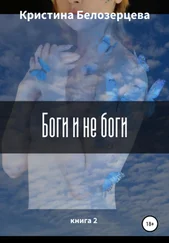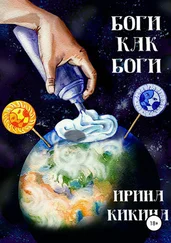В. Набоков - Боги
Здесь есть возможность читать онлайн «В. Набоков - Боги» весь текст электронной книги совершенно бесплатно (целиком полную версию без сокращений). В некоторых случаях можно слушать аудио, скачать через торрент в формате fb2 и присутствует краткое содержание. Жанр: Классическая проза, на русском языке, engl. Описание произведения, (предисловие) а так же отзывы посетителей доступны на портале библиотеки ЛибКат.
- Название:Боги
- Автор:
- Жанр:
- Год:неизвестен
- ISBN:нет данных
- Рейтинг книги:4 / 5. Голосов: 1
-
Избранное:Добавить в избранное
- Отзывы:
-
Ваша оценка:
- 80
- 1
- 2
- 3
- 4
- 5
Боги: краткое содержание, описание и аннотация
Предлагаем к чтению аннотацию, описание, краткое содержание или предисловие (зависит от того, что написал сам автор книги «Боги»). Если вы не нашли необходимую информацию о книге — напишите в комментариях, мы постараемся отыскать её.
На английский переведен Д. В. Набоковым.
На русском языке не публиковался.
Обратный перевод с англ. в 2011 г. Сакун С.В.
Боги — читать онлайн бесплатно полную книгу (весь текст) целиком
Ниже представлен текст книги, разбитый по страницам. Система сохранения места последней прочитанной страницы, позволяет с удобством читать онлайн бесплатно книгу «Боги», без необходимости каждый раз заново искать на чём Вы остановились. Поставьте закладку, и сможете в любой момент перейти на страницу, на которой закончили чтение.
Интервал:
Закладка:
The young man flung him a shiny coin and ran off amid the stands, the hen pressed to his bosom. Then he stopped, turned abruptly with a whip of his pigtail, and ran back to the old vendor.
"I need the cage too," he said.
When he went off at last, holding the chicken with the cage in his outstretched hand and swinging the other arm, as if he were carrying a bucket, the old man gave a snort and lay back down on his mat. How business went that day and what happened to him afterwards is of no concern to us at all.
As for the young man, he was none other than the son of the renowned physicist Charles. Charles glanced over his spectacles at the little hen, gave the cage a flick of his yellow fingernail, and said, "Fine-now we have a passenger as well." Then, with a severe glint of his eyeglasses, he added, "As for you and me, my boy, we'll take our time. God only knows what the air is like up there in the clouds."
The same day, at the appointed hour on the Champs de Mars, before an astonished crowd, an enormous, lightweight dome, embroidered with Chinese arabesques, with a gilded gondola attached by silken cords, slowly swelled as it filled with hydrogen. Charles and his son busied themselves amid streams of smoke blown sideways by the wind. The hen peered through the wire netting of her cage with one beady eye, her head tilted to one side. All around moved colorful, spangled caftans, airy women's dresses, straw hats; and, when the sphere lurched upward, the old physicist followed it with his gaze, then broke into tears on his son's shoulder, and a hundred hands on every side began waving handkerchiefs and ribbons. Fragile clouds floated through the tender, sunny sky. The earth receded, quivery, light-green, covered with scudding shadows and the fiery splashes of trees. Far below some toy horsemen hurtled past-but soon the sphere rose out of sight. The hen kept peering downward with one little eye.
The flight lasted all day. The day concluded with an ample, vivid sunset. When night fell, the sphere began slowly descending. Once upon a time, in a village on the shore of the Loire, there lived a gentle, wily-eyed peasant. Out he goes into the field at dawn. In the middle of the field he sees a marvel: an immense heap of motley silk. Nearby, overturned, lay a little cage. A chicken, all white, as if modeled out of snow, was thrusting its head through mesh and intermittently moving its beak, as it searched for small insects in the grass. At first the peasant had a fright, but then he realized that it was simply a present from the Virgin Mary, whose hair floated through the air like autumn spider-webs. The silk his wife sold off piecemeal in the nearby town, the little gilded gondola became a crib for their tightly swaddled firstborn, and the chicken was dispatched to the backyard.
Listen on.
Some time elapsed, and then one fine day, as he passed a hillock of chaff at the barn gate, the peasant heard a happy clucking. He stooped. The hen popped out of the green dust and hawked at the sun as she waddled rapidly and not without some pride. While, amid the chaff, hot and sleek, glowed four golden eggs. And no wonder. At the wind's mercy, the hen had traversed the entire flush of the sunset, and the sun, a fiery cock with a crimson crest, had done some fluttering over her.
I don't know if the peasant understood. For a long time he stood motionless, blinking and squinting from the brilliance and holding in his palms the still warm, whole, golden eggs. Then, his sabots rattling, he rushed across the yard with such a howl that his hired hand thought he must have lopped off a finger with his axe. . . .
Of course all this happened a long, long time ago, long before the aviator Latham, having crashed in mid-Channel, sat, if you will, on the dragonfly tail of his submerging Antoinette, smoking a yellowed cigarette in the wind, and watching as, high in the sky, in his little stubby-winged machine, his rival Bleriot flew for the first time from Calais to England's sugary shores.
But I cannot overcome your anguish. Why have your eyes again filled with darkness? No, don't say anything. I know everything. You mustn't cry. He can hear my fable, there's no doubt at all he can hear it. It is to him that it's addressed. Words have no borders. Try to understand! You look at me so balefully and darkly. I recollect the night after the funeral. You were unable to stay home. You and I went out into the glossy slush. Lost our way. Ended up in some strange, narrow street. I did not make out its name, but could see it was inverted, mir-rorlike, in the glass of a streetlamp. The lamps were floating off into the distance. Water dripped from the roofs. The buckets lining both sides of the street, along black walls, were filling with cold mercury. Filling and overflowing. And suddenly, helplessly spreading your hands, you spoke:
"But he was so little, and so warm. ..."
Forgive me if I am incapable of weeping, of simple human weeping, but instead keep singing and running somewhere, clutching at whatever wings fly past, tall, disheveled, with a wave of suntan on my forehead. Forgive me. That's how it must be.
We walk slowly along the fences. The cemetery is already near. There it is, an islet of vernal white and green amid some dusty vacant land. Now you go on alone. I'll wait for you here. Your eyes gave a quick, embarrassed smile. You know me well. . . . The wicket-gate squeaked, then banged shut. I sit alone on the sparse grass. A short way off there is a vegetable garden with some purple cabbage. Beyond the vacant lot, factory buildings, buoyant brick behemoths, float in the azure mist. At my feet, a squashed tin glints rustily inside a funnel of sand. Around me, silence and a kind of spring emptiness. There is no death. The wind comes tumbling upon me from behind like a limp doll and tickles my neck with its downy paw. There can be no death.
My heart, too, has soared through the dawn. You and I shall have a new, golden son, a creation of your tears and my fables. Today I understood the beauty of intersecting wires in the sky, and the hazy mosaic of factory chimneys, and this rusty tin with its inside-out, semidetached, serrated lid. The wan grass hurries, hurries somewhere along the dusty billows of the vacant lot. I raise my arms. The sunlight glides across my skin. My skin is covered with multicolored sparkles.
And I want to rise up, throw my arms open for a vast embrace, address an ample, luminous discourse to the invisible crowds. I would start like this:
"O rainbow-colored gods ..."
[1] Жак Александр Сезар Шарль (12.11.1746 - 07.04.1823) - французский физик, член Парижской АН (1803), в 1816 году - президент. Родился в Божансе. Учился самостоятельно. Профессор экспериментальной физики в Консерватории искусств и ремесел в Париже.
Исследовал расширение газов, установил (1787) закон изменения давления данной массы идеального газа с изменением температуры при постоянном объеме (закон Шарля). Сразу же после братьев Монгольфье построил воздушный шар из прорезиненной ткани и первый использовал для его заполнения водород.
Осуществил полет на этом шаре в 1783 году. Изобрел ряд приборов. Шарль первый предпринял попытку получения фотографических изображений.
??1924 - 150 = 1774 г. (9 лет спишем на приблизительность), но «пожилой физик» - слегка перебор - в 1783г Шарлю было - 37 лет.???
Читать дальшеИнтервал:
Закладка:
Похожие книги на «Боги»
Представляем Вашему вниманию похожие книги на «Боги» списком для выбора. Мы отобрали схожую по названию и смыслу литературу в надежде предоставить читателям больше вариантов отыскать новые, интересные, ещё непрочитанные произведения.
Обсуждение, отзывы о книге «Боги» и просто собственные мнения читателей. Оставьте ваши комментарии, напишите, что Вы думаете о произведении, его смысле или главных героях. Укажите что конкретно понравилось, а что нет, и почему Вы так считаете.


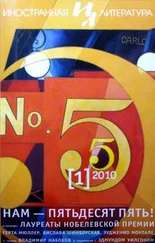

![Эрих фон Дэникен - Боги майя [День, когда явились боги]](/books/230700/erih-fon-deniken-bogi-majya-den-kogda-yavilis-bo-thumb.webp)
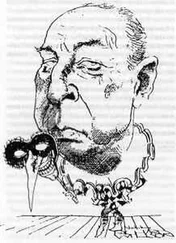
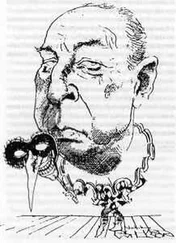
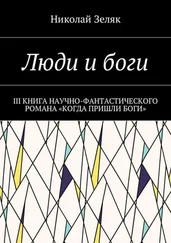
![Александра Лисина - Когда темные боги шутят [1. Когда темные боги шутят, 2. Шепот темной стороны]](/books/392230/aleksandra-lisina-kogda-temnye-bogi-shutyat-1-kogd-thumb.webp)
